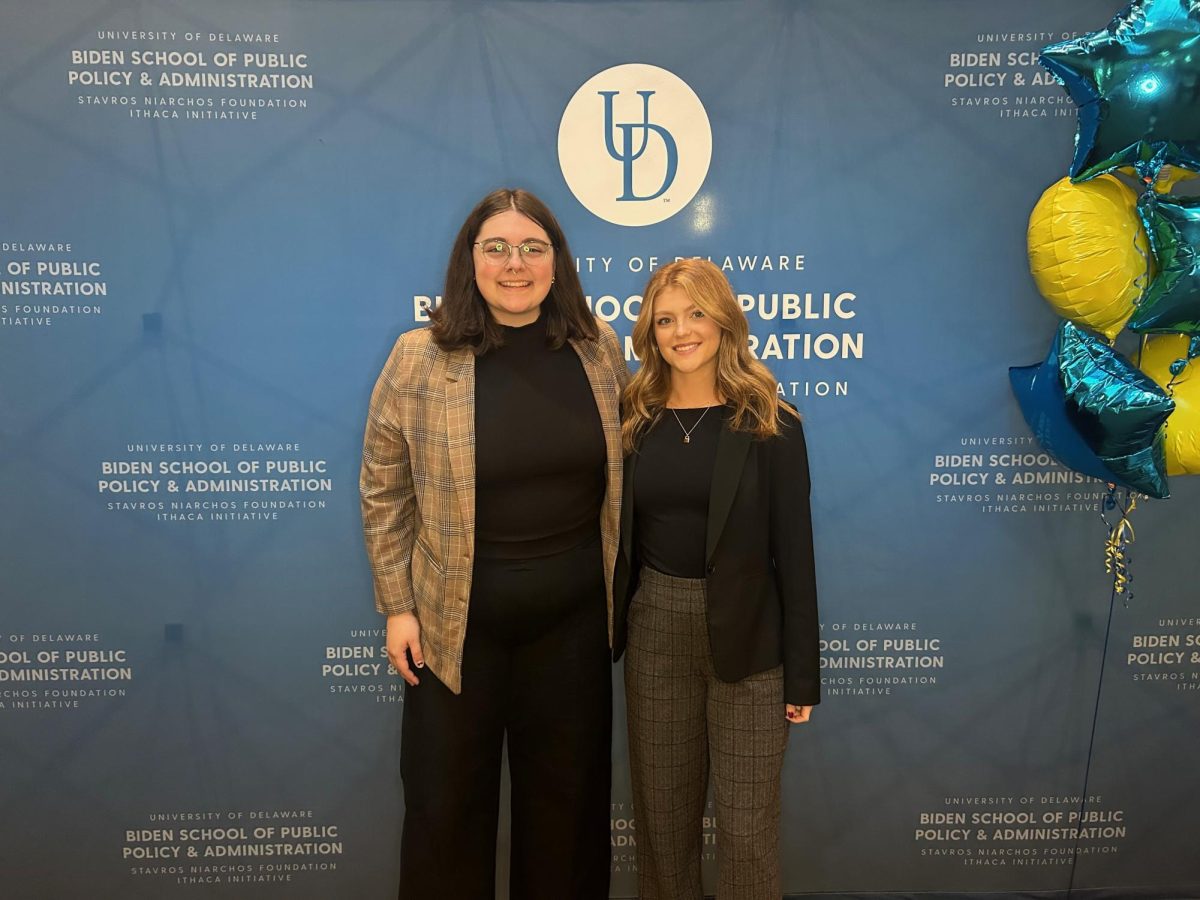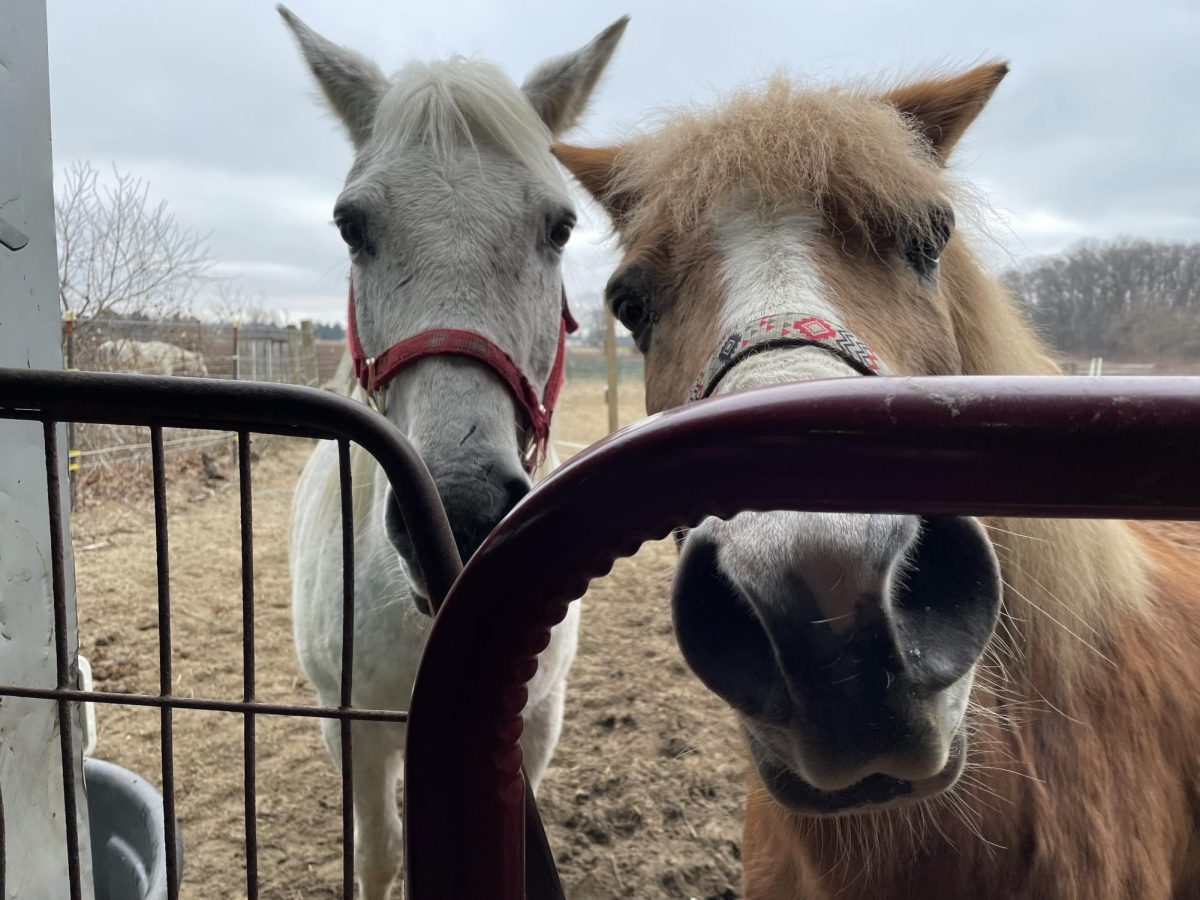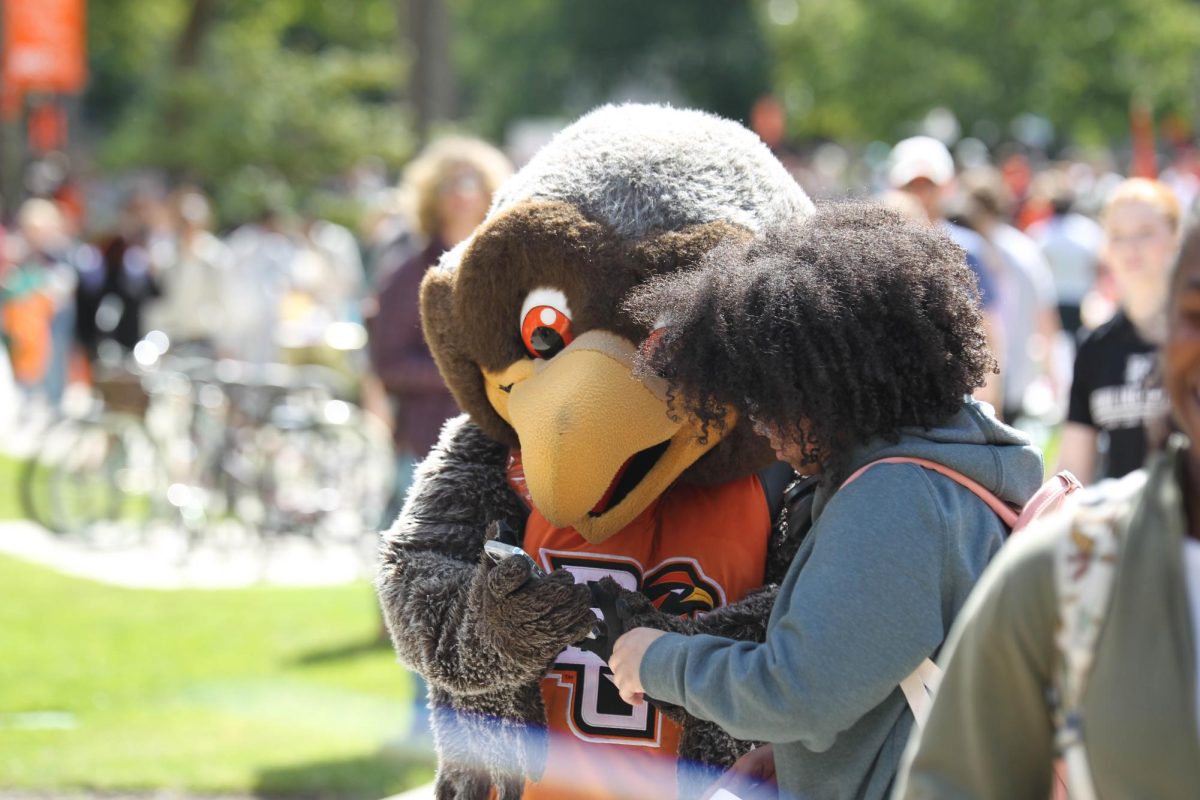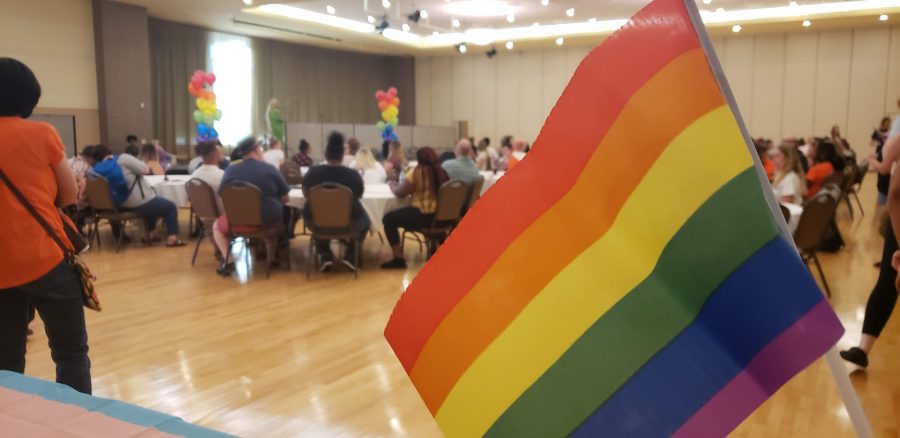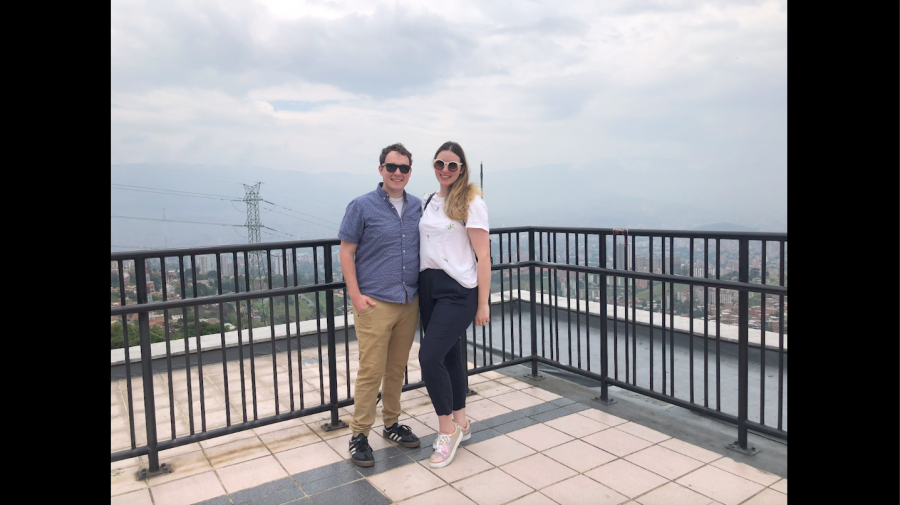When Jacob Smith graduates in December, he’ll enter the real world.
But he’s already been there. More than most.
So has 2009 graduate Aaron Zdawczyk.
Both Falcons are veterans of the War on Terror (Zdawczyk with Brave Company’s 1st and 148th Infantry and the Army National Guard and Smith with the 4th and 27th First Armor Division and 427th Field Artillery.)
While the two have different stories, they share a special bond all military personnel have when fighting in a war.
Smith said he learned more in the military than any amount of schooling could teach.
‘There is a maturity that when you are in the military, you are forced to grow up very fast,’ he said.
In the line of battle
‘It’s like news you never want to hear about.’ – Zdawczyk Smith’s first military experience came when he enlisted in the Junior ROTC in high school.
‘The mission of the JROTC is to motivate young people to become better Americans,’ he said.
The Sandusky, Ohio, native had such a positive experience with JROTC that he decided to enlist in the military.
Smith was sent to Germany in 2001, after he completed his basic training. His main duties were to guard the front gate of a U.S. facility building, drive a humvee with supplies and load cannon balls. No battles ensued in Germany during his time there.
But after the Sept. 11. attacks and then-President George W. Bush’s declaration of war, Smith said his military experience drastically changed.
Smith’s field artillery deployed into Iraq in 2003, just three weeks after U.S. troops entered Baghdad.
As the unit made their way into Iraq, they assisted civilians by moving them into correct zones (people and soldiers were assigned to specific areas in order to differentiate allies from enemies), and Smith first realized just how hard war is.
‘When you’ve seen war, it never really hit home. I knew what we were doing was serious and people could die, but you never think about it,’ Smith said.
When stationed in the combat zone, Smith witnessed the death of 10 of his troops. The deaths of his brothers solidified his position on war.
‘I hate war because people die,’ he said. ‘I hate the way old men dream up new ways for young men to die. I hate war because it takes the worst of us.’
Through his experiences, Smith said the military has made him an overall stronger person, even with the tragedy of death.
Experiencing the culture and interacting with Iraqi civilians who were happy to receive help from American soldiers were some of the better memories Smith has of the war.
The 28-year-old said he sometimes thinks about the advances through school he could have made had he not enlisted. But it is a choice that was done and one he can be proud of.
‘There is a massive difference between Jacob [Smith] of 2000 and Jacob [Smith] of 2004,’ Smith said. ‘The military has changed my life and arguably for the better.’
Fighting the enemy
‘I slowly walked away and cried for a good four days straight.’ -Zdawczyk
After witnessing the Sept. 11 attacks on television, Zdawczyk felt it was his patriotic duty to enlist in the war.
The Toledo resident would come home from school each day to watch further events unfold on broadcast news, and, in October 2002, Zdawczyk enlisted with the Army National Guard on a six-year contract.
After his freshman year in 2005, Zdawczyk was deployed on his first mission to New Orleans, helping refugees travel from New Orleans to Houston.
The 25-year-old said being in New Orleans was like being in a third-world country. He could not tell if he was hundreds or thousands of miles away from Ohio, because of the submerged buildings and displaced residents.
After returning to Bowling Green, Zdawczyk finished another year of school, but was then given his toughest assignment to date – deployment to Iraq.
‘The notification kind of stabbed me in the chest and I didn’t know how to react to it,’ he said.
In September 2006, Zdawczyk, 25, trained in Kuwait, sharpening military skills while learning how to deal with parts of Middle Eastern culture, such as 100-degree plus temperatures and the Arabic language.
Zdawczyk learned Bravo Company would be under orders for detaining civilians, or moving individuals in custody from one point to another.
One of the stronger memories Zdawczyk has is when he encountered an Iraqi cameraman who filmed murders of Americans for Iraqi television channels.
While soldiers don’t frequently correspond with detainees, Zdawczyk wanted to know why anyone would record such heinous acts.
‘The cameraman gave me the closest gaze with the darkest of eyes and said, ‘I do it because I have to,” he said.
Honoring veterans
‘I was in complete and utter shock.’ – Zdawczyk
Brett Holden said it was necessary to improve relations between veterans, the surrounding community and students on campus.
So, the University associate professor of film studies helped found the Student Veteran Task Force. The group, which meets monthly, allows veterans to relive their experiences while familiarizing students not affiliated with the military with who soldiers really are. SVTF also helps veterans transition into University life.
‘I want us to better understand this population of individuals,’ Holden said. ‘In doing so, we need to help provide them an enriching and energizing college experience where they can evolve.’
Holden has worked closely with Zdawczyk, including inviting him to talk twice about his service at SVTF events.
SVTF embodies respect. Zdawczyk said he doesn’t want awards or trophies, but just some appreciation.
‘I just tell them to go and shake [a veteran’s] hand or give them a salute to know their efforts aren’t being overlooked or overturned,’ Zdawczyk said.
Holden created SVTF to help civilians understand the contribution of soldiers.
Afterthoughts
‘I saluted the casket one more time ‘hellip; I couldn’t believe he was in a casket.’ – Zdawczyk
After returning from Iraq in September 2007, Zdawczyk received the worst news after returning to the University.
He received a call in February 2009 from a sergeant who solemnly told him one of best friends in Bravo had died in the line of duty.
Staff Sgt. Jason Burkholder, 27, was killed in Afghanistan after a bomb detonated where soldiers from the Illinois Army National Guard were stationed. Two others died in the bombing.
Upon receiving the news, Zdawczyk dropped the phone in shock. He knew such a tragedy could occur, but never thought it actually would.
‘It was like someone took pliers and took a hammer and broke my heart into a million pieces,’ he said. ‘It was the worst thing ever to witness.’
Zdawczyk traveled to Lima, Ohio, to pay respects to his fallen brother. He stood beside Burkholder’s casket reminiscing.
His final goodbye came after the 21 gun salute, but Zdawczyk said he honors Burkholder every day by wearing a titanium steel ‘Killed in Action’ bracelet with Burkholder’s name.
Death is one of the stark realities a soldier must deal with, Zdawczyk said, but in no way did Burkholder’s death trump Zdawczyk’s military experience.
‘Everything I have done in the military, to this date, I have no regrets,’ he said. ‘If I had the chance to change something, I wouldn’t.’


